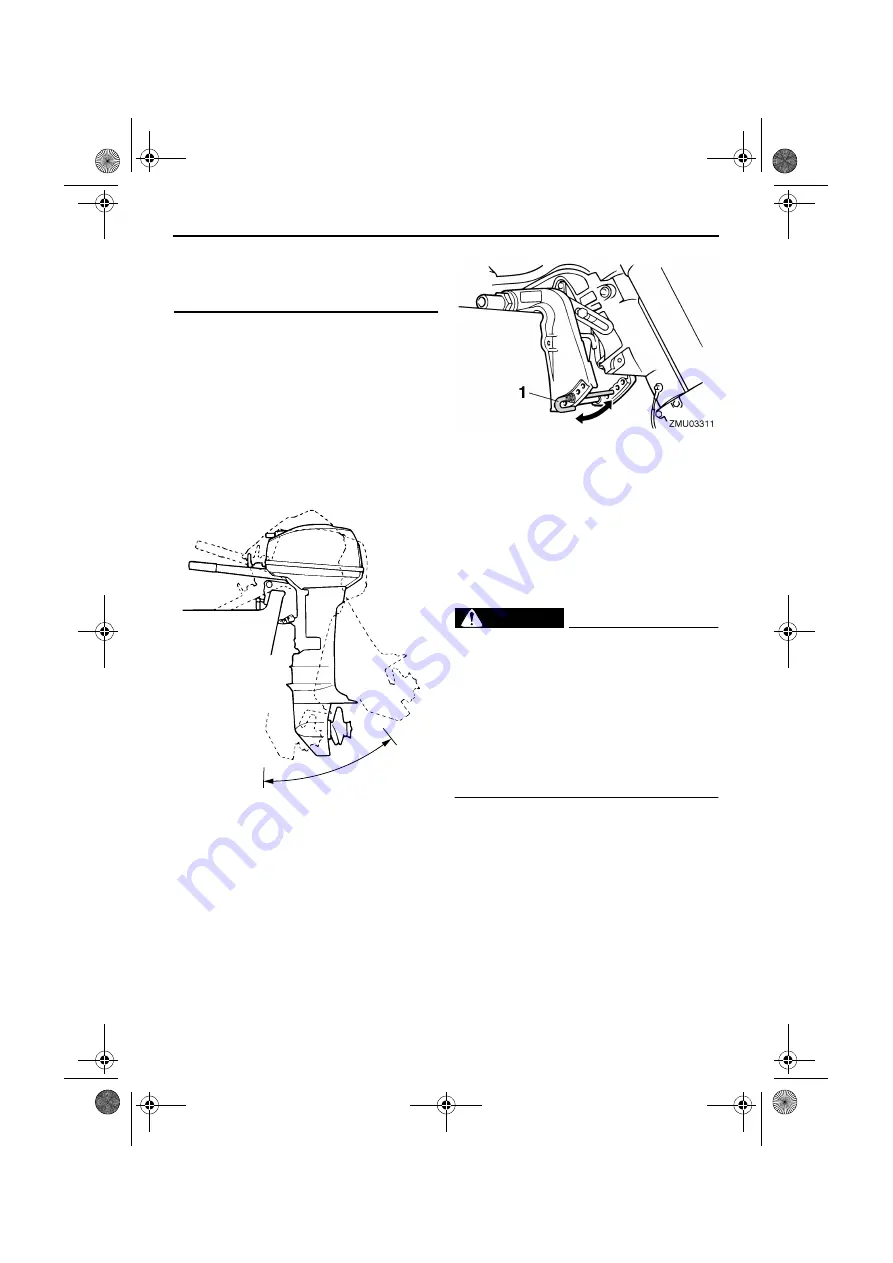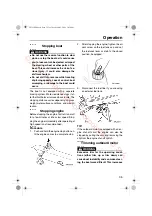
Operation
36
the possibility of an accident. If the boat
begins to feel unstable or is hard to steer,
slow down and/or readjust the trim angle.
The trim angle of the outboard motor helps
determine the position of the bow of the boat
in the water. Correct trim angle will help im-
prove performance and fuel economy while
reducing strain on the engine. Correct trim an-
gle depends upon the combination of boat,
engine, and propeller. Correct trim is also af-
fected by variables such as the load in the
boat, sea conditions, and running speed.
EMU27872
Adjusting trim angle for manual tilt
models
There are 4 or 5 holes provided in the clamp
bracket to adjust the outboard motor trim an-
gle.
1.
Stop the engine.
2.
Tilt the outboard motor up, and then re-
move the trim rod from the clamp bracket.
3.
Reposition the rod in the desired hole.
To raise the bow (“trim-out”), move the rod
away from the transom.
To lower the bow (“trim-in”), move the rod to-
ward the transom.
Make test runs with the trim set to different an-
gles to find the position that works best for
your boat and operating conditions.
WARNING
EWM00400
●
Stop the engine before adjusting the
trim angle.
●
Use care to avoid being pinched when
removing or installing the rod.
●
Use caution when trying a trim position
for the first time. Increase speed gradu-
ally and watch for any signs of instability
or control problems. Improper trim an-
gle can cause loss of control.
TIP:
The outboard motor trim angle can be
changed approximately 4 degrees by shifting
the trim rod one hole.
EMU27911
Adjusting boat trim
When the boat is on plane, a bow-up attitude
results in less drag, greater stability and effi-
ciency. This is generally when the keel line of
the boat is up about 3 to 5 degrees. With the
bow up, the boat may have a greater tenden-
1. Trim operating angle
ZMU02043
1
1. Trim rod
U63V1EE0.book Page 36 Tuesday, March 3, 2009 10:50 AM
©
2019 Yamaha Motor Corporation, U.S.A.















































